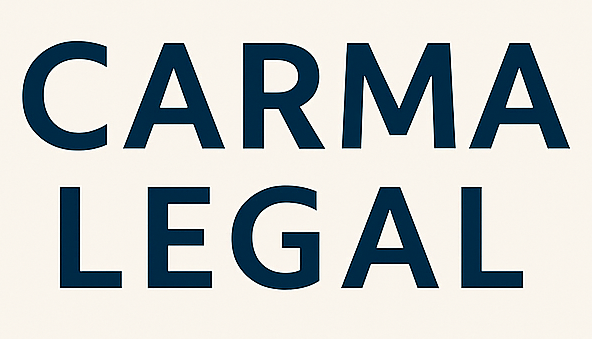Understand living trust basics
What is a living trust?
A living trust is a legal arrangement that holds assets for your benefit during life and passes them to named beneficiaries upon your death. Unlike a will, a trust can become effective while you’re alive, giving you the flexibility to manage or alter assets as circumstances change. A key advantage is that assets in a living trust typically bypass probate court, helping you protect privacy and reduce administration delays [1].
Revocable vs irrevocable trusts
When you explore trust options, you’ll encounter two main types:
- Revocable trust
- You can amend or terminate it at any time.
- Offers flexibility but minimal tax benefits.
- Learn more from our revocable trust lawyer page.
- Irrevocable trust
- Generally cannot be changed once funded.
- Can provide significant asset protection and tax planning advantages.
- See our irrevocable trust attorney resource.
Deciding between these structures depends on your goals, asset complexity, and desire for ongoing control versus creditor protection.
How trusts avoid probate
One of the most compelling reasons to establish a trust is probate avoidance. Assets held in a living trust transfer directly to beneficiaries without court supervision, which:
- Reduces time and costs associated with estate settlement
- Maintains the confidentiality of your estate details
- Minimizes potential challenges by disgruntled heirs
If preserving your family’s privacy is important, consult a probate avoidance estate planning lawyer to ensure your trust is structured correctly.
Identify trust benefits
Asset protection features
A properly drafted living trust can shield your estate from certain creditor claims and lawsuits. By transferring ownership to the trust, you create a legal barrier between personal liabilities and trust assets. This level of protection is especially valuable if you worry about:
- Lawsuits arising from business activities or professional services
- Unexpected medical or long-term care expenses
- Future creditors targeting your real estate holdings
For high-net-worth individuals, selecting an asset protection trust attorney who understands offshore trusts and multi-jurisdiction planning is crucial [2].
Privacy and confidentiality
Unlike a will, which becomes public record during probate, a living trust remains private. This confidentiality helps you:
- Keep beneficiary distributions out of the public eye
- Prevent potential family disputes fueled by rumor or misinformation
- Protect sensitive assets, such as business interests or investment portfolios
If maintaining discretion is a priority, discuss privacy clauses and successor trustee selection with your family trust attorney.
Planning for incapacity
A living trust typically includes provisions for management if you become unable to make decisions yourself. By naming a successor trustee:
- You ensure continuous asset management without court intervention
- You avoid the expense and delay of guardianship or conservatorship proceedings
- Your chosen trustee can carry out your financial and healthcare preferences
Including clear incapacity guidelines helps safeguard your interests and reduces stress for loved ones during a crisis.
Choose a trust attorney
Trust expertise and experience
Not all lawyers have equal proficiency in trust law. You should look for counsel who:
- Has a proven track record with complex estates and high-value assets
- Understands cross-border issues if you hold property internationally [2]
- Regularly advises clients on both trust creation and ongoing administration
Start by consulting an estate planning attorney with specific trust practice.
Board certification matters
Board certification in wills, trusts, and estates signals advanced competence. For example, attorneys certified by the American College of Trust and Estate Counsel (ACTEC) have passed rigorous exams and adhere to ethical standards [3]. When you interview potential advisors, ask about:
- State-specific certifications or specializations
- Continuing education commitments
- Memberships in professional estate planning organizations
Communication and personalization
Your attorney should be responsive and tailor their service to your unique circumstances. During initial meetings, consider:
- How clearly they explain legal concepts
- Whether they ask detailed questions about family dynamics, assets, and goals
- Their willingness to anticipate future needs and offer proactive guidance
A supportive attorney becomes a trusted advisor, helping you adjust your plan as life evolves.
Draft your living trust
Gathering key information
To draft an enforceable trust, you’ll need to compile:
- A complete inventory of assets (real estate, investments, business interests)
- Titles, deeds, and account statements
- Beneficiary designations for retirement plans and life insurance
- Details on any co-owners or joint tenancy arrangements
Your lawyer will use this data to fund the trust and align documents with your overall plan.
Designating trustees and beneficiaries
Selecting the right individuals or institutions to serve as trustee is critical. You should consider:
- Competence and reliability of successor trustees
- Potential conflicts if family members serve in multiple roles
- The benefits of a professional trustee for complex or multi-state estates
Clearly defining beneficiary classes and fallback provisions helps avoid ambiguity later on.
Customizing trust provisions
A living trust can include specialized clauses to address your objectives:
- Spendthrift provisions to protect inheritances from creditors
- Staggered distributions for minor or inexperienced beneficiaries
- Charitable remainder or lead trust components for philanthropic goals
Work closely with your trusts lawyer to ensure each provision reflects your wishes and complies with state law.
Maintain and review trust
Periodic trust reviews
Life changes such as marriage, divorce, births, or significant asset acquisitions require updates to your trust. Schedule annual or biennial reviews to:
- Confirm that asset lists and beneficiary designations are current
- Incorporate new legal developments or tax law changes
- Reassess trustee performance and succession planning
Regular maintenance preserves the integrity of your plan and prevents unintended consequences.
Updating beneficiaries and assets
Whenever you acquire or dispose of property, transfer titles into or out of the trust. Failing to retitle assets can leave them vulnerable to probate. During reviews:
- Verify that deeds, account registrations, and policy forms list the trust as owner or beneficiary
- Remove assets that no longer fit your strategy
- Add new holdings promptly to maintain seamless protection
Coordinating related documents
A comprehensive estate plan includes more than a trust. Coordinate your living trust with:
- Last will and testament (for back-up distributions)
- Durable power of attorney [4]
- Medical power of attorney [5]
- Advance directives [6]
Ensuring consistency across documents avoids conflicts and gaps in authority.
Plan for lasting protection
Next steps and resources
To move forward:
- Consult a qualified comprehensive estate planning lawyer to evaluate your needs.
- Gather financial and family information, then meet to discuss trust structures.
- Draft, review, and execute your living trust in compliance with state requirements.
- Fund the trust by retitling assets and designating beneficiaries.
- Schedule regular reviews to adapt your plan over time.
By engaging a dedicated trust attorney, you can achieve peace of mind knowing your assets are protected, your family is provided for, and probate is avoided. Take proactive steps today to secure your estate and ensure your wishes endure.








